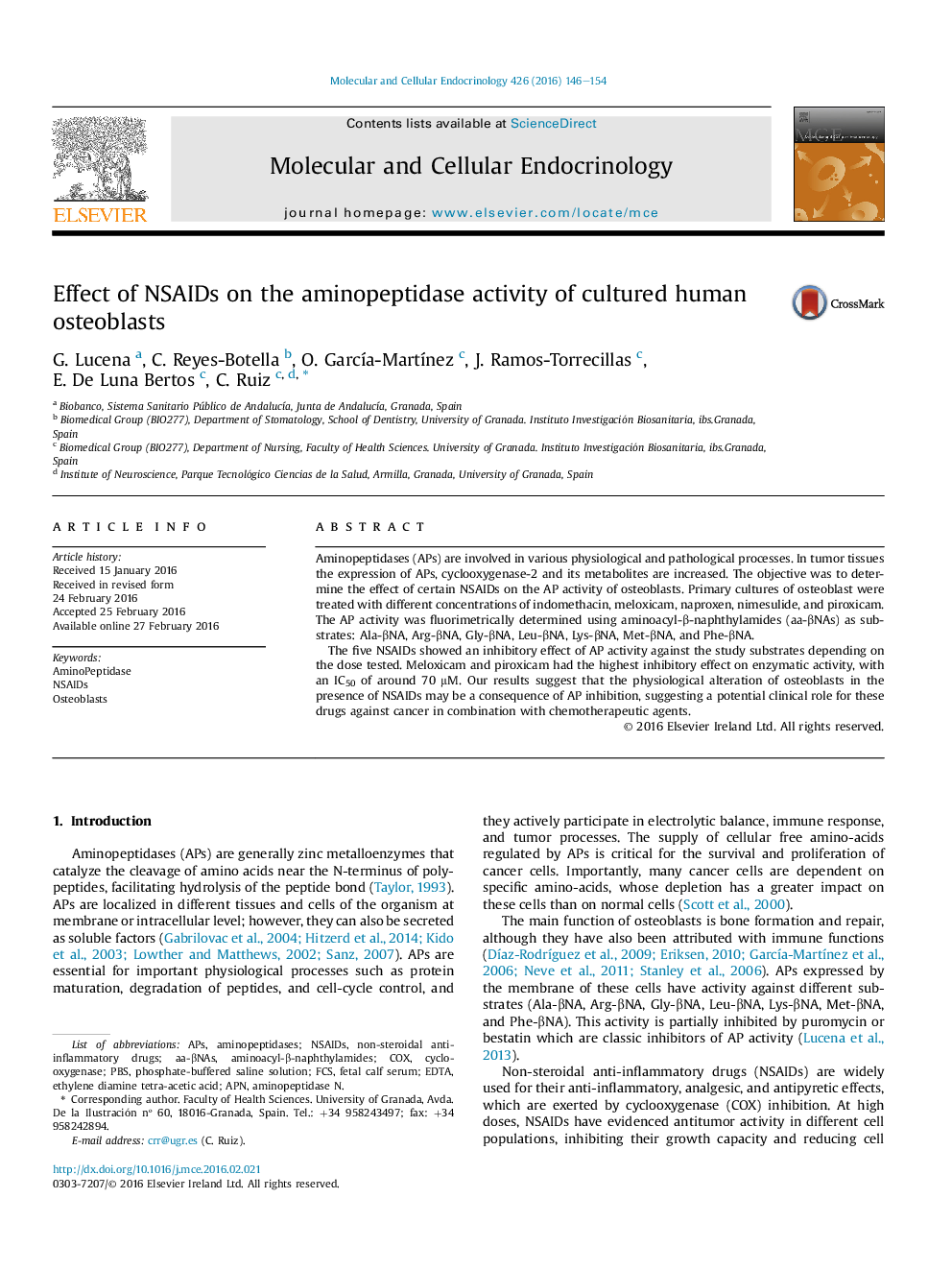| Article ID | Journal | Published Year | Pages | File Type |
|---|---|---|---|---|
| 2195602 | Molecular and Cellular Endocrinology | 2016 | 9 Pages |
•NSAIDs modulate AP activity in human cultured osteoblasts.•NSAIDs inhibit AP activity depending on the substrates and the dose tested.•Meloxicam and piroxicam had the highest inhibitory effect on enzymatic activity.
Aminopeptidases (APs) are involved in various physiological and pathological processes. In tumor tissues the expression of APs, cyclooxygenase-2 and its metabolites are increased. The objective was to determine the effect of certain NSAIDs on the AP activity of osteoblasts. Primary cultures of osteoblast were treated with different concentrations of indomethacin, meloxicam, naproxen, nimesulide, and piroxicam. The AP activity was fluorimetrically determined using aminoacyl-β-naphthylamides (aa-βNAs) as substrates: Ala-βNA, Arg-βNA, Gly-βNA, Leu-βNA, Lys-βNA, Met-βNA, and Phe-βNA.The five NSAIDs showed an inhibitory effect of AP activity against the study substrates depending on the dose tested. Meloxicam and piroxicam had the highest inhibitory effect on enzymatic activity, with an IC50 of around 70 μM. Our results suggest that the physiological alteration of osteoblasts in the presence of NSAIDs may be a consequence of AP inhibition, suggesting a potential clinical role for these drugs against cancer in combination with chemotherapeutic agents.
